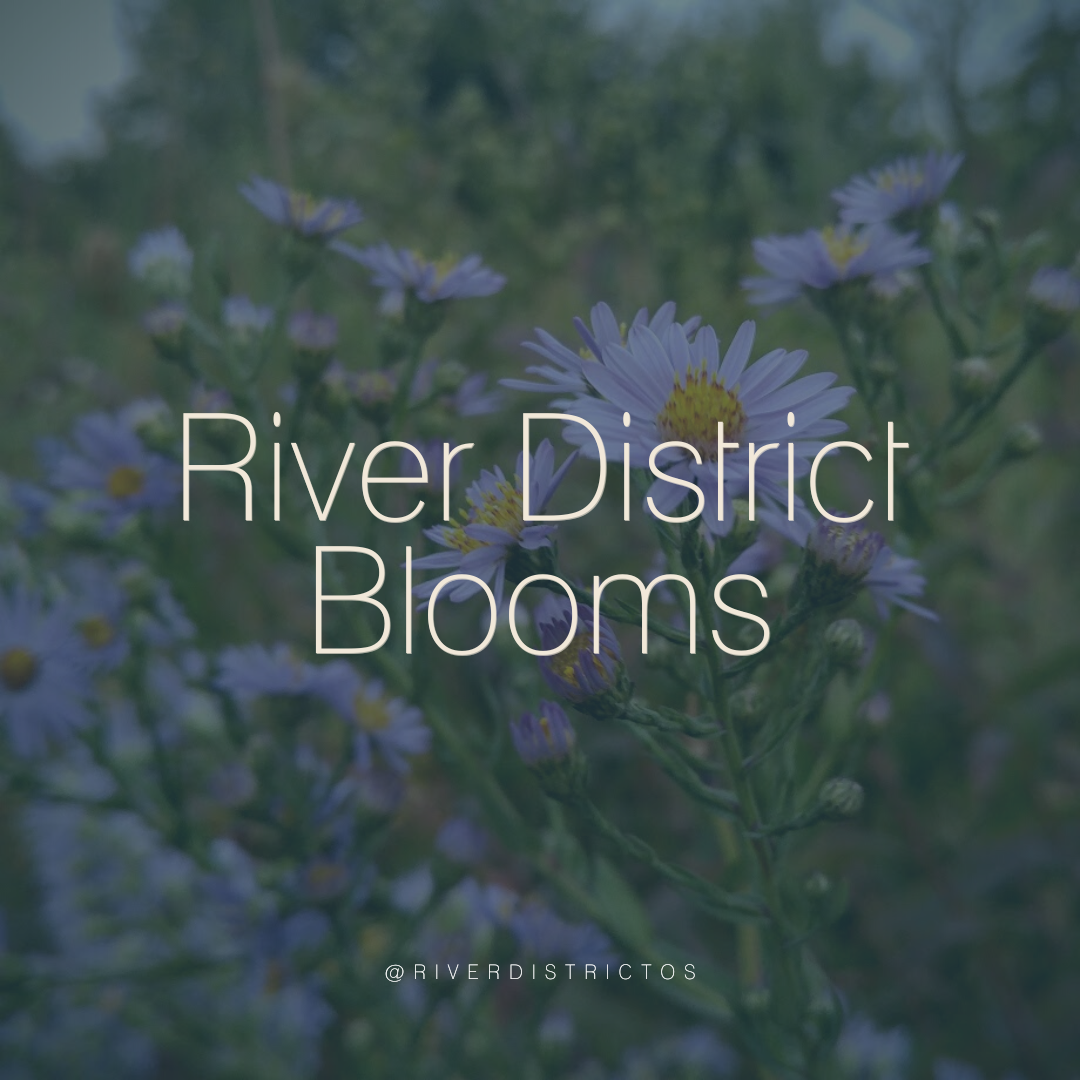
River District Blooms
Welcome to River District Blooms, a celebration of the beautification of the River District with a focus on pollinating and native plant life!
- Native plants are ones that occur naturally in a particular region without human intervention. For example, a plant might be native to the United States or Australia.
- Indigenous plants are also ones that occur naturally but in a localized geographical area, so, for example, a plant species might be Indigenous to the coastal area of Seattle. You might find these plants elsewhere, but they originated in one specific area and are, therefore, indigenous to that original area.
- Endemic plants occur naturally in a limited area and nowhere else, like those you find in biodiversity hotspots.
- Pollinator Plant provides nectar, pollen, or both to pollinators such as bees, butterflies, moths, birds, bats, and other animals. These plants are specifically attractive to pollinators and play a crucial role in the pollination process, which is essential for the reproduction of many flowering plants. The primary characteristics of pollinator plants include:
- Nectar Production: Many pollinator plants produce nectar, a sweet liquid that provides energy for pollinators.
- Pollen Production: Pollen serves as a protein source for many pollinators, especially bees.
- Flower Characteristics: The flowers of pollinator plants often have bright colors, pleasant scents, and specific shapes that attract pollinators and facilitate their access to nectar and pollen.
- Bloom Time: Pollinator plants usually have bloom times that coincide with the activity periods of their pollinators.
By supporting a diverse range of pollinator plants, gardeners and conservationists can help sustain healthy pollinator populations, which are vital for the ecosystem and for agricultural production. Somewhere between 75% and 95% of all flowering plants on the earth need help with pollination – they need pollinators. In addition to the food that we eat, pollinators support healthy ecosystems that clean the air, stabilize soils, protect from severe weather, and support other wildlife.
This year, we recognize and celebrate the efforts of 3 specific groups making strides to not only beautify but to support the local ecosystem by choosing to plant pollinating plant life.
Stay tuned.
